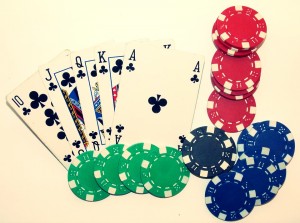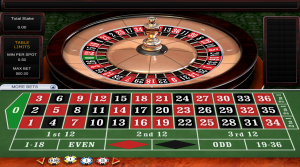 The video games industry, just like all others, can’t survive without your money. It used to be the case that all games would be sold at a fixed price. Once you bought your copy, that was it. However, in recent years there’s been a growing trend for games to be free to play. Free games still cost mil-lions to create and market, so how do the developers make their money back? Many no-cost games generate revenue through ads, while others use the rather controversial loot boxes, which some have likened to a form of gambling.
The video games industry, just like all others, can’t survive without your money. It used to be the case that all games would be sold at a fixed price. Once you bought your copy, that was it. However, in recent years there’s been a growing trend for games to be free to play. Free games still cost mil-lions to create and market, so how do the developers make their money back? Many no-cost games generate revenue through ads, while others use the rather controversial loot boxes, which some have likened to a form of gambling.
What Are Loot Boxes and How Do They Work?
So what is a loot box? It’s a virtual box of randomly determined items that a game lets you purchase with real money. You can purchase loot boxes whenever you like, though there’s no guarantee what’s inside. Some of the items you can receive include customisation options for your ava-tar/profile (clothes an accessories for your avatar), weapons, armour, other items and even charac-ters. Some loot box rewards, such as character skins, are purely cosmetic and don’t affect your pro-gress in the game at all. Others, such as weapons and armour, can help you get ahead.
Some of the biggest games around today use or have used loot boxes, including Fortnite, Over-watch, FIFA, Madden, Apex Legends and Star Wars Battlefront II. The way the boxes work and what you can get both vary from one game to the next, but the core mechanic is the same: pay and you’ll get a random selection of times, some or all of which may not be of any worth to you.
Are Loot Boxes a Form of Gambling?
A question that’s come up a lot recently is whether loot boxes constitute a form of gambling. This is because of the fact that you have to spend actual money to get them and there’s an element of luck to them: you may get items you want, or you may not.
Certain casino games, such as slots and roulette, are entirely based on luck. In other words, once you’ve placed your bet there’s nothing you can do to influence the game’s outcome; it’s down to luck alone whether you win and get paid, or lose. Though video games don’t give you money, paying for loot boxes is still regarded by some as gambling because of the randomness. When you play luck-based casino games, you place your bet and luck determines whether you get what you want, i.e. a win and some money. When you play video games, you pay for a loot box and it’s luck that deter-mines whether you get what you want from the box.
Do People Get Addicted to Them?
There have been quite a few stories posted online about people spending more money than they should have on loot boxes. Some people only spend small sums regularly, while others keep paying for boxes until they get what they’re after and can end up forking out hundreds, or even thousands of pounds over the course of a year.
A major concern is obviously that people can easily end up spending money that they don’t have or can’t afford to lose on loot boxes. A key problem is that limits on how many of these boxes you can buy don’t exist, so if you want to keep on buying boxes, the game will let you. Video games are very popular with children and teenagers, and people are concerned about youngsters being tempted or even pressured into buying loot boxes. It’s believed that if people of any age keep on buying loot boxes, they’ll develop a sort of gambling problem that could get serious if not dealt with; they could even move on to other forms of gambling, such as playing online casino games.
What’s Being Done About Them?
While countries have taken different approaches to loot boxes, in the UK they’re not covered by the country’s gambling laws. Therefore, they’re not regulated. This is because the items that you can earn from the boxes are deemed not to have any monetary value. However, the debate about loot boxes has been going on for a few years now and has been gaining momentum. The Department for Digital, Culture, Media and Sport is reportedly working on regulating loot boxes in some way and could formally class them as a form of gambling.
Though loot boxes can generate large amounts of money for video games, some games, including Star Wars Battlefront II, actually decided to stop offering them because of the negative reaction from players. If loot boxes do get classed as a form of gambling, it would be interesting to see how the legislation would affect games that currently use them.
 swetswise.com
swetswise.com GVC Holdings PLC and Ladbrokes Coral are in detailed discussions regarding a merger of the two companies. GVC have put forward a proposal to acquire shares in Ladbrokes Coral in a deal that values the group at between £3.1bn and £3.9 bn.
GVC Holdings PLC and Ladbrokes Coral are in detailed discussions regarding a merger of the two companies. GVC have put forward a proposal to acquire shares in Ladbrokes Coral in a deal that values the group at between £3.1bn and £3.9 bn.  Japan has a very long and very complicated history with gambling. I won’t get into it here in the interest of time, but suffice to say, for the longest time the land of the rising sun has been extremely conservative when it comes to betting money on games and expecting to get money back. Keep in mind that casino-like activities have existed in the country for years, such as the famous Pachinko machine scheme (which involves people betting money on Pachinko machines, getting some kind of prize from them and then exchanging said prize for money at an unrelated establishment), which further proves that many Japanese people REALLY want to gamble, but alas, the government was an immovable object… Until recently. Believe it or not, just a few months ago
Japan has a very long and very complicated history with gambling. I won’t get into it here in the interest of time, but suffice to say, for the longest time the land of the rising sun has been extremely conservative when it comes to betting money on games and expecting to get money back. Keep in mind that casino-like activities have existed in the country for years, such as the famous Pachinko machine scheme (which involves people betting money on Pachinko machines, getting some kind of prize from them and then exchanging said prize for money at an unrelated establishment), which further proves that many Japanese people REALLY want to gamble, but alas, the government was an immovable object… Until recently. Believe it or not, just a few months ago  When you’re an online casino operator, you pretty much need to rely on two groups of people in order to obtain a consistent income. One of them is, of course, the “whales” – the hardcore gamblers that play for hours every day and pay you hundreds in their attempts to win the jackpot. I guess the less politically correct term to describe those people would be “addicted”, but that’s a discussion better saved for another day. The other group, of course, is newcomers – those who come in, put 20 quid into their account, spin a slot a couple of times, and then never play again. You’d be surprised to learn that the latter group brings in just as many profits as the former – why do you think practically every casino offers so many huge first deposit bonuses, but most offer absolutely no second, third or fourth deposit bonuses? They know that most people need that extra push to invest the first time, and if they like it they’re going to remain loyal to the casino for the foreseeable future even without bonuses.
When you’re an online casino operator, you pretty much need to rely on two groups of people in order to obtain a consistent income. One of them is, of course, the “whales” – the hardcore gamblers that play for hours every day and pay you hundreds in their attempts to win the jackpot. I guess the less politically correct term to describe those people would be “addicted”, but that’s a discussion better saved for another day. The other group, of course, is newcomers – those who come in, put 20 quid into their account, spin a slot a couple of times, and then never play again. You’d be surprised to learn that the latter group brings in just as many profits as the former – why do you think practically every casino offers so many huge first deposit bonuses, but most offer absolutely no second, third or fourth deposit bonuses? They know that most people need that extra push to invest the first time, and if they like it they’re going to remain loyal to the casino for the foreseeable future even without bonuses. Ever since its humble beginnings as an 18th century casino game played in France, roulette has since taken the entire Western world by storm! Whether you’ve decided to visit a casino in Sin City, Nevada, or in Macau, or in Monte Carlo, or Paris, or Kampala, there’s absolutely no way that you won’t find at least a couple of roulette tables staffed by charming croupiers who always spin that wheel with a big, friendly smile on their face… Or, if you’re
Ever since its humble beginnings as an 18th century casino game played in France, roulette has since taken the entire Western world by storm! Whether you’ve decided to visit a casino in Sin City, Nevada, or in Macau, or in Monte Carlo, or Paris, or Kampala, there’s absolutely no way that you won’t find at least a couple of roulette tables staffed by charming croupiers who always spin that wheel with a big, friendly smile on their face… Or, if you’re  If you’ve read
If you’ve read  Before we start talking about how virtual reality could impact and change gambling forever, let’s see what this technology is all about and what you can expect from such games and applications. First of all, you should know that virtual reality is the use of special technology that gives users the feeling of actually being part of an inexistent environment. This year – 2016 is expected to be the year when
Before we start talking about how virtual reality could impact and change gambling forever, let’s see what this technology is all about and what you can expect from such games and applications. First of all, you should know that virtual reality is the use of special technology that gives users the feeling of actually being part of an inexistent environment. This year – 2016 is expected to be the year when  British bookmaker PaddyPower has gotten into some hot water recently when very unpleasant accusations were sent their way from numerous sources. According to a recent investigation by the UK Gambling Commission – the foremost authority that monitors casinos and betting booths both online and offline – PaddyPower has neglected to properly report the activities of three different gamblers suspected of participating in money laundering schemes. The investigators state that a grand total of £280,000 were laundered right under the noses of PaddyPower officials, who either never learned a thing or deliberately chose not to act upon the information they received. The bookmaker’s management refused to argue the allegations and made a deal with the UKGC in order to avoid being fined. As a result, PaddyPower agreed to donate the aforementioned £280,000 to a “socially responsible cause”, as well as cover the expenses of the investigation, which amount to roughly £30,000. Several sources claim, however, that this isn’t the management team’s first transgression.
British bookmaker PaddyPower has gotten into some hot water recently when very unpleasant accusations were sent their way from numerous sources. According to a recent investigation by the UK Gambling Commission – the foremost authority that monitors casinos and betting booths both online and offline – PaddyPower has neglected to properly report the activities of three different gamblers suspected of participating in money laundering schemes. The investigators state that a grand total of £280,000 were laundered right under the noses of PaddyPower officials, who either never learned a thing or deliberately chose not to act upon the information they received. The bookmaker’s management refused to argue the allegations and made a deal with the UKGC in order to avoid being fined. As a result, PaddyPower agreed to donate the aforementioned £280,000 to a “socially responsible cause”, as well as cover the expenses of the investigation, which amount to roughly £30,000. Several sources claim, however, that this isn’t the management team’s first transgression.